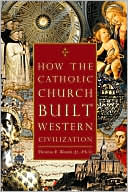The book examines a number of different types pf prayer. Last week we looked at "Simple Prayer." This week we look at "Prayer of the Forsaken ."
Chapter 2
Prayer of the Forsaken
To come to the pleasure you have not you must go by a way in which you enjoy not. –St John of the Cross
My God, My God, why hast thou forsaken me? (Matt 27:46b)
Times of seeming desertion and absence and abandonment appear to be universal among those who have walked this path of faith before us.
Sooner or later we will know what it is like to feel forsaken by God.
Sometimes it seems that God is hidden from us, like “we are beating on Heaven’s door with bruised knuckles in the dark.” (George Buttrick)
When we speak of the absence of God we do not speak of actual absence but rather a sense of absence. God is with us always but at times he withdraws from our consciousness of his presence.
We question, we doubt, we struggle. We feel abandoned by friends, spouse and God. We pray and the words echo in a hollow shell, we turn to the bible and the words swim before us. Music fails to inspire and we find Christian fellowship is filled with egoism, backbiting and selfishness.
The biblical metaphor is the desert; dry, barren parched. “I call all day, my God and you never answer.” Ps 22:2)
What good can we find in these times?
Encouragement –
Many have come this way before us: Moses, Psalmist, Elijah, Jeremiah lowered into the well, Mary alone on Golgotha. “My God, why…why…why?”
Saint John of the Cross- named it the dark night of the soul. An anonymous
English writer described it as “the cloud of unknowing”. Jean-Pierre de Caussade
“the dark night of faith.” George Fox, “When it was day I wished for night and
when it was night I wished for day.” (P.18-19)
We are in good company.
It does not mean that God is displeased with you or that you have committed some offense against God or there is something wrong with you. (note:unconfessed sin can indeed block us off from God)
Darkness is a definite experience of prayer. It should be expected, even embraced.
Every experience is unique to the individual. It does not occur on any timetable but God’s. We may enter these dark canyons and barren places at any number of points on our journey. We do not move from set stage to set stage . If we did we would not be in a living relationship but rather in a mechanical one.
In prayer we are entering into a living relationship that begins and develops in mutual freedom. God gives us freedom because he seeks creatures who freely seek his love and relationship. We must learn to give God the same freedom. Though unlike us He will never abandon.
a. If we could make God appear at our beck and call we would not be worshipping the God of Abraham, Issac and Jacob. We would be worshipping an object, an idol.
Like Aslan in the Chronicles of Narnia, God is wild and free and comes at will. By refusing to be a puppet on our string or a genie in our bottle God is freeing us from our false idolatrous images.
b. Besides we might not be able to endure such a command performance. e.g. Exod 20:39 “Do not let God speak to us or we will die.”
Have you been there? The death of a spouse or child, a crisis in marriage or vocation or a failure in business. Or just a simple slipping away from the warm glow of intimate communion.
St John of the Cross says two purifications occur during the dark night of the soul.
1. Stripping us of dependence on external results.
a. Less impressed with the religion of the “big deal”- buildings, productions, budgets, miracles. Neither praise or adulation (kind and gracious remarks) Though nothing is wrong with them THEY are no longer what impresses. Or moves us.
b. Likewise liturgical practices, sacramental symbols, prayer aids, books on self fulfillment, private devotional exercises. Though nothing is wrong with them THEY are no longer what fascinate us.
c. We become less in control of our destiny e.g. Peter in John 21:18-19. The realization that I can not conquer God , but God will conquer me.
2. Stripping us of dependence on internal results.
a. Most disturbing and painful for we we begin to wonder, not if we believe in God but what kind of God we believe in. Faith hope and love become subject to doubt. Our own motivations become suspect. P 22 (e.g. is prayer a psychological trick, does the universe have meaning, does God really love me)
b. God is producing detachment, humility, patience, perseverance.
Our thirst can lead to the habit of prayer. It can also lead us to give up
What to do during the desert times
Prayer of Complaint- Praying the Lament Psalms. They teach us to pray our inner conflicts and contradictions. They give us permission to shake our fist at God in one moment and praise him the next.
Short Darts of Longing Prayer bet upon the cloud of unknowing “with a short dart of longing love.
We may not see the end from the beginning, but we can keep on doing what we know to do: pray, listen, worship, carry out the duty of the moment.
What we learned to do in the light we do in the dark. Constant, longing, love produces a firmness of life orientation. We love God more than the gifts God brings. Like Job, we serve God even if he slays us. (see also Mary Luke 1:38)
How to Wait
Trust precedes faith.
Trust in the character of God.
“I do not understand what God is doing or even where God is, but I know that he is out there to do me good.” That is trust. That is how to wait.
“O my god, deep calls unto deep (Ps 42:7). The deep of my profound misery calls to the deep of your infinite mercy.”- Bernard of Clairvaux
Prayer-
God, Where re You!? What have I done to make you hide from me? Are you playing cat and mouse with me, or are your purposes larger than my perceptions? I feel alone, lost, forsaken.
Your are not the God who majors in revealing yourself. You showed yourself to Abraham, Isaac, and Jacob. When Moses asked to know what you looked liked you obliged him. Why them and not me?
I am tired of praying. I am tired of asking. I am tired of waiting. But I will keep on praying and asking and waiting because I have nowhere else to go.
Jesus, you too, knew the loneliness of the desert and the isolation of the cross. And it is through your forsaken prayer that I speak these words- amen


No comments:
Post a Comment